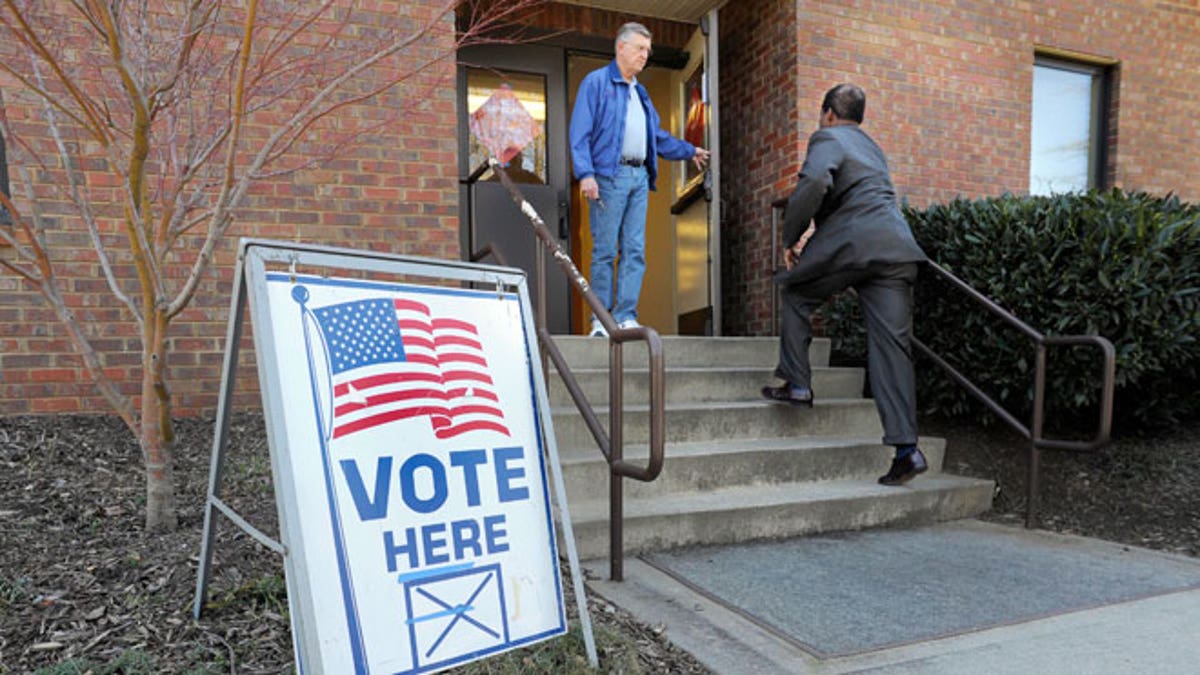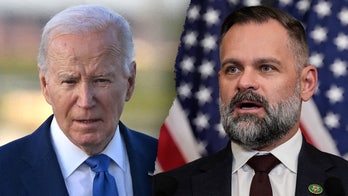
(Reuters)
Mitt Romney failed to land a knockout blow against rival Rick Santorum on "Super Tuesday," raising the prospect of a drawn-out battle for the Republican presidential nomination between the party's establishment and its grassroots conservatives.
Romney won four of the 10 state contests and held a narrow lead in Ohio, the night's biggest prize as he moved closer to the 1,144 delegates needed to win the party's nomination.
But the results underscored Romney's continued inability to win over large swathes of the Republican base, who view his past as a moderate Massachusetts governor with suspicion.
Romney won easily in his home state, as well as liberal-leaning Vermont and in Idaho, where Romney's fellow Mormons make up a substantial slice of the electorate. Romney also won Virginia, where Santorum failed to qualify for the ballot.
Santorum said his victories in Tennessee, Oklahoma and North Dakota proved he was the best candidate to represent the party's conservative philosophy.
Newt Gingrich won his home state of Georgia and said he would stay in the race.
As the night wore on, all eyes were on Ohio, a politically divided state sure to be hotly contested in the Nov. 6 election between the eventual Republican nominee and Democratic President Barack Obama.
With just over 90% of the vote counted, Romney led Santorum by 38% to 37%. Romney ran strongest in and around the state's largest cities, while Santorum carried the rural areas.
Exit polls showed that Ohio voters viewed Romney as more likely to defeat Obama, but thought Santorum was more sympathetic to average Americans' concerns. Santorum won more support among middle-income voters who make up the bulk of the electorate.
"I think Santorum is believable, wholesome. When he talks, his ideas are genuine. I don't put any stock in Romney," said Lonnie Vestal, 36, a pastor from Mason, Ohio.
STRUGGLE TO CONNECT
Romney, who built a fortune of at least $200 million as a private-equity executive, has struggled to connect with conservatives and blue-collar voters. A convincing win in Ohio would have put many of those doubts to rest, but a loss or a close result could point to an extended, state-by-state battle.
Romney looked likely to extend his lead among delegates even if he does not win Ohio, as Santorum's thinly staffed campaign failed to qualify for delegates in several parts of the state. Under new rules designed to lengthen the nominating battle, most states at this stage of the process award delegates on a proportional basis.
"We're counting up the delegates for the convention and it looks good," Romney told supporters in his home state of Massachusetts.
Santorum, a former U.S. senator from Pennsylvania, has won support of religious conservatives thanks to his opposition to gay marriage and his views on other hot-button social issues. He also has targeted blue-collar voters, but his controversial comments about birth control and the role of religion have alienated moderate-leaning voters.
Romney and his allies outspent Santorum by nearly 4 to 1 in Ohio, according to campaign finance data, with much of that on negative ads.
"We're going to get at least a couple of gold medals and a whole passel full of silver medals," Santorum told supporters. "We've won in the West, the Midwest, in the South and we're going to win across this country."
Gingrich's strategy of focusing on southern states did not pay off in Tennessee and Oklahoma, but he vowed to stay in the race after his Georgia win.
"There are lots of bunny rabbits to run through, I am the tortoise. I just take one step at a time," Gingrich said.
Ron Paul, a U.S. representative from Texas known for his libertarian views, hopes to score his first win in Alaska.
In recent presidential campaigns, the Super Tuesday wave of primaries and caucuses has often settled the Republican race. But this year's race is likely to stretch until April or May - or possibly until the last contest on June 26 - under new rules designed to attract more voters and boost enthusiasm.




